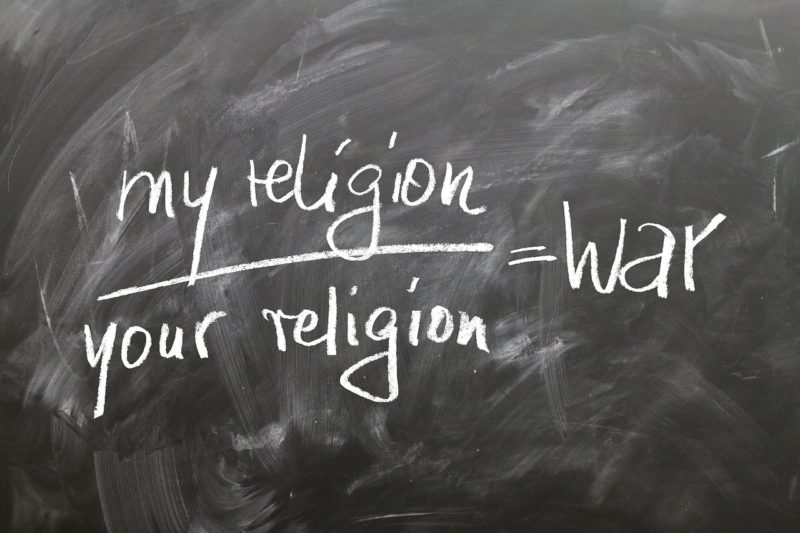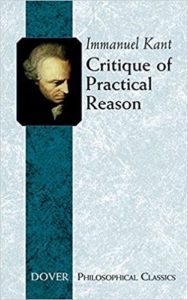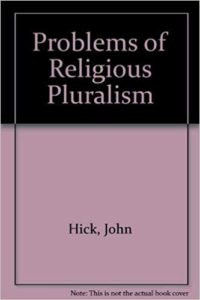Whenever Japanese people discuss religious wars and inter-religious conflicts, they always come up with the opinion, “Isn’t it wrong to have religion in the first place?” This is an opinion that is often voiced by Japanese people.
Self-consciously, I think it can be said that this is a peculiar opinion of Japanese people, who feel that “being non-religious” is rather “proof of intelligence” or “evidence of progress.
But this is the same argument as saying, “There are murders because there are knives. “Therefore, we should eliminate knives.
Knives (at least cooking knives) are not made for the purpose of killing people, but in reality, murders with knives do happen.
But that doesn’t mean that people will say things like, “Well, let’s wipe out knives from the world!”
This is because, as mentioned above, knives were not invented and produced for the purpose of killing people in the first place.
Similarly, no single religion, with the exception of a few cults, is founded for the purpose of killing people.
At least that is the case for major world religions such as Christianity, Islam, and Buddhism.
So, if we go by the knife theory mentioned above, the opinion that religious wars occur because there is a religion in the first place is still out of line.
Outside of Japan, the rather major religious view is that religion is the basis of all ethics.

In fact, I have heard that many boarding houses in Germany “do not rent rooms to non-religious people.
The reason for this is the fear that since religion is the basis of ethics, a non-religious person does not have an ethical foundation and therefore does not know what to do.
Rather, we should know that this feeling is more in the majority on a global scale.
Speaking of ethical foundations, the philosopher Kant, in his “Critique of Practical Reason“, one of his major works, stated that “God cannot be proved, but our practical reason demands God.
In Kantian terms, we call it the “moral law,” which is, well, ethics. Kant’s analysis is that the base of ethics requires God or religion.
Also, Thomas More, who, along with Machiavelli, laid the foundation of modern political thought, literally presented an ideal society with a hypothetical utopia in his book “Utopia“.
In that book, atheists are excluded from legal protection on Utopia Island. The reason is the same as the German lodge mentioned earlier.
Here, too, the idea is that religion is the basis for ethics.
Therefore, it is necessary to examine the causes of religious wars and interreligious conflicts from a different perspective.
Check out the “jihadist” philosophy of the world’s three major religions
First, we will check the world’s three major religions’ view of war based on the original texts, but then we will explore the causes and solutions.
Christian jihadist ideology
Historically, there have been a great many Christian wars, but from our reading of Jesus’ words, it is more of an extreme “absolute pacifism”.
“You have heard that it was said, ‘An eye for an eye, and a tooth for a tooth.’ But now I tell you: do not take revenge on someone who wrongs you. If anyone slaps you on the right cheek, let him slap your left cheek too. (Matthew 5:38-39)
So it is truly a mystery why Christianity is so prone to attract wars. It is a point that everyone wonders about at least once.
Christianity was born out of Judaism.
And it looks to the Old Testament for the basis of Jesus being the “Messiah” or “Christ.
However, Yahveh, the one and only God in the Old Testament, has a strong aspect of “God of judgment” and “God of envy.
The Old Covenant is replete with documents in which Yahveh commands “holy abstinence,” such as the following
When the Lord your God brings you into the land you are entering to possess and drives out before you many nations—the Hittites, Girgashites, Amorites, Canaanites, Perizzites, Hivites and Jebusites, seven nations larger and stronger than you— and when the Lord your God has delivered them over to you and you have defeated them, then you must destroy them totally. Make no treaty with them, and show them no mercy. (Deuteronomy 7:1-3)
In the end, the affirmation of war is based on the view that the God whom Jesus called “Father” is the same God as Yahveh of the Old Testament.
This is an inevitable consequence of Christianity’s legitimacy in continuity with the Old Covenant, as mentioned earlier.
However, I believe that Christianity should abandon the equation “God the Father = Yahveh (Yahweh).”
*Reference article. Yahweh and Elohim are Two Different Gods – Why It is Better to Distinguish between the Ethnic Gods and the Supreme God
Some believe that Yahveh was originally a fighting god from the Arabian Peninsula (Sinai).
When Moses conducted the Exodus, he made Yahveh the “only God,” and I think that Yahveh should be regarded as the “national god” of the Jewish people.
The god who was considered the supreme deity in the region of Canaan was originally called Elohim. Elohim is not a proper name, but rather GOD in English.
This Elohim became confused with Yahveh, and I think this confusion should be cleared up.
There are various prophets in the Old Testament, but I believe that in many cases there was actually a confusion as to which God they were entrusting their words to.
The idea that the “jealous God” is the only God is itself a contradiction in terms.
Since “to be jealous” means “to have an object to be jealous of,” that is, “to recognize other gods,” right?
”I am the God of envy. There is no god but me.”
But by saying this, he showed the angels that other gods do exist.
For who could he envy if there were no other gods? (From “John’s Secretary (Apocryphon)”)
So, I still think it is better to regard Yahveh, the jealous God, not as the supreme deity, but as the national deity of the Jewish people only.
It would be better to make the doctrinal shift that the “God the Father” that Jesus was preaching was not Yahveh, but Elohim.
In fact, during the formative years of Christianity, the Gnostics were making such claims.
However, Gnosticism was dismissed as “heresy,” and before long the equation of God the Father = Yahweh became entrenched.
In hindsight, I am sure that there were many things that Gnosticism did not reach, but still, here, the “detachment of Yahveh from Christianity” should have been adopted as orthodoxy.
Islamic Ideology of Jihad
Islam has a “jihad” or so-called Holy War ideology.
Fight in the cause of Allah ˹only˺ against those who wage war against you, but do not exceed the limits.1 Allah does not like transgressors.(Qur’an, 2:190.)

Islam is famous for “suicide bombings,” so we tend to think of it as warlike, but from a doctrinal perspective, this is not the case.
As you can see from the quotation, basically only “war of self-defense” is affirmed.
Historically, Islamic occupation policy was much more permissive than Christianity’s, allowing the religious freedom of the residents as long as they paid their taxes.
Crusades, for example, are more of a pattern of waging war from the side of Christian nations.
The modern Islamic conflict has its origins in the Palestinian issue, but the main cause of the Palestinian problem is the fact that the Western powers allowed the establishment of the state of Israel in the Palestinian territories by force.
Another cause is the colonial policies of earlier Western powers.
Of course, this does not mean that suicide bombings involving civilians are acceptable.
However, it is important to know that, from a military point of view, if there is an overwhelming difference in military power, the only option left is “surprise tactics.
Islamic Holy War is called “Jihad,” a word that is also well-known, but originally means something like ” striving for struggle.
The war of self-defense is called “minor jihad. On the other hand, the main jihad, the “major jihad,” is meant to be a religious practice.
Islam recognizes Christianity as a brother religion.
However, it does not recognize the position that “Jesus is not the Son of God but one of the prophets,” nor does it recognize the doctrine of the “Trinity,” which threatens the monotheistic doctrine.
Having said that, Allah means GOD, which is the “God of Abraham,” or in Christian terms, “God the Father.”
Muslims and Christians are people who believe in the same God with the equation “Allah = Elohim = God the Father. I think it is imperative that they engage in a dialogue based on the fact that they are brother religions.
Peace-loving Buddhism
As for the world’s three major religions, only one remains: Buddhism.
As for Buddhism, it is safe to say that “there were virtually no religious wars”.
More recently, there have been conflicts between Buddhists and Muslims in Myanmar, but such things are rather exceptional, and at least they have not caused conflicts that will go down in world history as major, such as the Crusades or the German 30 Years War.
Building a common base for theism with “Allah = God the Father = Amitabha
It goes without saying that dialogue among religions is important to resolve interreligious conflicts, but in reality, this alone will not solve the root problem.
In order to resolve the root problem, it is essential to address the “cause” of the problem.
This means that it is important to create an identical inter-religious base.
While this paper will not go into the detailed doctrines of the world’s three major religions, I believe that there is a way to synthesize Christianity, Islam, and Buddhism.
*Reference article. Buddhism and Christianity – Theory to Overcome Differences and Extract Similarities
Putting aside the detailed doctrines, I think it is essential that we first try to achieve unity in our view of GOD.
I mentioned above that the Christian “God the Father” and the Islamic “Allah” are the same being.
In the Mahayana tradition of Buddhism, there is the idea of ” Metta Tathagata,” or the Eternal Buddha (Lotus Sutra), or Vairocana Buddha (Buddhāvataṃsaka Sūtra).
The “Dharmakāya” who is a synthesis of the various tathagatas, including the Buddha Shakyamuni as one of the incarnations, is envisioned.
It is important to note here that “Metta Tathagata” is literally “the Buddha beyond,” but it is also the idea of including the various buddhas within Himself.
The fact that Buddhism itself relativizes its founder, Gautama Buddha, as “one of the incarnations” is a major concession, so to speak.
This Metta Tathagata, Vairocana Buddha personified, is Allah, God the Father.
The Vairocana Buddha personified is the compassionate Amitabha Buddha.
Then, the following equation can be assumed as the ultimate God (Buddha) of Mercy on earth.
Amitabha Buddha = Allah = God the Father (Elohim)
For a discussion of the use of Elohim rather than Yahweh as “God the Father,” see the article below.
*Reference article. Yahweh and Elohim are Two Different Gods – Why It is Better to Distinguish between the Ethnic Gods and the Supreme God
I will try to synthesize the detailed doctrines on this website (Neo Buddhism), but the main thing is the synthesis of this view of GOD, and I think this is the key.
In the theology of any religion, “theism” is the primary base.
Hence, if we succeed in sharing at the theism, the rest becomes a matter of each theory.
In short, the direction is to understand that there is one God, but that He is called by many different names.
There is one God, but when he differentiates his energy and manifests on earth, he takes on different names and forms.
Or, taking into consideration the zeitgeist and locality, the One God manifests in a way that is appropriate to it.
This view is called “religious pluralism,” and John Hick’s “Problems of Religious Pluralism” is a well-known example.
Conclusively, if we think in this way of religious pluralism, interreligious conflicts, disputes, and wars should lose their basis and disappear from the earth.
Our website (Neo Buddhism) also adopts this religious pluralism approach.
*Reference page: What is Neo Buddhism?
Misinterpretation of the Golden Rule and the Taiki-Seppo
*Taiki-Seppo: a sermon suited for a certain group of people
So why has it become so difficult to think in religious pluralist terms as described above?
This is probably due to the seemingly different content of the teachings preached in each religion. As mentioned above, the name of God is also called differently.
So let us explore why the teachings appear different.
As mentioned above, God takes into account regional and chronological characteristics and manifests accordingly. God responds to humanity historically.

God appears in such a way because it is impossible for human reason to grasp the whole picture of God at any one time.
Also, if God did not appear in such a way, He would lose His saving power in the first place, right?
In these various manifestations of God, it can be said that the teachings are preached according to the target of the preaching.
In a broad sense, this is equivalent to the Buddhist term “Taiki-Seppo.
The sermon somehow contains such a special characteristic of the countermeasure method.
However, there is a Golden Rule, a teaching that applies to the past, present, and future, and transcends regional differences, even without such special characteristics.
The Golden Rule generally refers to the following biblical passage.
“Do for others what you want them to do for you: this is the meaning of the Law of Moses and of the teachings of the prophets. ( Matthew 7:12)
However, I would like to call the principles that are applicable across time and regions the “Golden Rule.
On the other hand, teachings that are preached in accordance with the characteristics of the time period, region, or subject matter can be interpreted as “Taiki-Seppo” as described above.
The root of the problem seems to lie in the fact that such Taiki-Seppo is mistaken for the Golden Rule and interpreted in a uniform manner. This is also the cause of fundamentalism.
Let’s take an example from Christianity.
For example, the following preaching of Jesus is the Golden Rule.
*Jesus answered, “ ‘Love the Lord your God with all your heart, with all your soul, and with all your mind.’ *This is the greatest and the most important commandment. *The second most important commandment is like it: ‘Love your neighbour as you love yourself.’ *The whole Law of Moses and the teachings of the prophets depend on these two commandments.”(Matthew 22:37-40)
This is also preached by other world religions, albeit in different ways.
In Buddhism, this would correspond to the spirit of the Three Treasures of Refuge and Donation(Dāna).
What about the following scripture, however?
So Jesus said to them, “Well, then, pay the Emperor what belongs to the Emperor, and pay God what belongs to God.”(Matthew 22:21)
This teaching is preached as a kind of expedient, in short, Taiki-Seppo, to avoid falling into the trap of the Pharisees (scribes).
If we take a fundamentalist view of this point as if it were a Golden Rule, the earthly economy will not be able to survive at all, will it?

Thus, the narrowness of mankind’s capacity to understand, to interpret Taiki-Seppo as the Golden Rule, is the root cause of the religious wars.
Let’s summarize the argument.
- The idea that the teachings originally came from the One God is missing.
- Failure to distinguish between the “Golden Rule and Taiki-Seppo” in teachings and dragging everything out in a fundamentalist manner until later generations
- Hence, religions are at odds with each other, even leading to war.
And the solution is still, first of all, 1. “The teaching originally parted from the One God”. This seems to be the biggest point.
Once this point is shared, the search for “what is the ” Golden Rule” in common among religions will naturally progress.
Japan, which does not start religious wars, is a model for the world.
This is actually one major basis for my saying that if Pax Japonica is not realized, modern civilization will be forcibly terminated.
What is it that makes Pax Japonica appealing to the world? This is the ancient Japanese concept of “Shinbutsu Shugyo,” or Syncretism in the study of religion.
If this syncretism is theoretically developed and constructed, I believe that true ” Religious Pluralism” will be on its way to completion.

In fact, the last time Japan fought a war on the grounds of religion was the war between the Soga and Mononobe clans.
It was a 6th-century struggle between the Buddhist acceptors and the anti-Buddhist (Shinto defender) factions.
Japan had already settled this issue in the 6th century, during the reign of Prince Shotoku.
Isn’t this amazing?
What about in Western Europe, for example?
Even in the struggle between Catholics and Protestants (in short, between the same Christians), it was in the 17th century that they decided to stop fighting wars over doctrinal differences.
In short, after the Thirty Years’ War in Germany (1618-1648), which led to the Treaty of Westphalia.
Even for this, it is only a settlement within the limited scope of Christianity.
Shortly, I believe that the key to resolving religious conflicts lies in the Japanese value system of “syncretism” and its development into “religious pluralism.
Of course, it will not be a straightforward process, but Neo Buddhism intends to provide as many of its theoretical bases as possible to the present and future generations.





Comments